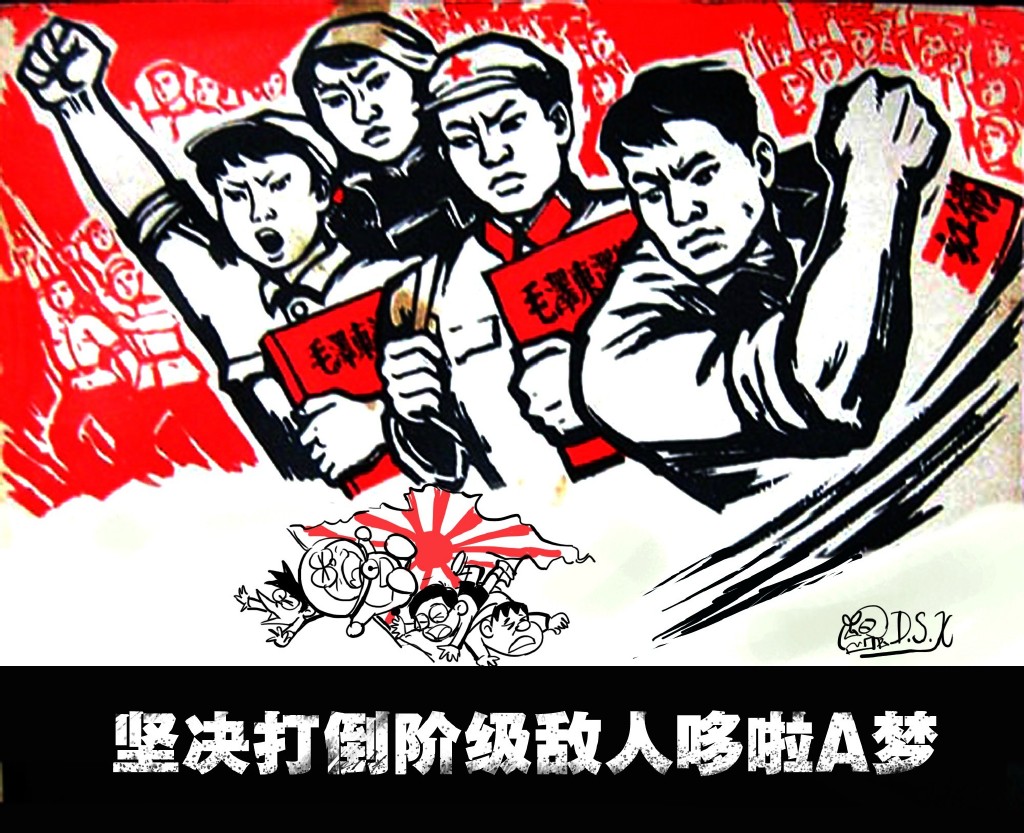In August, 102 life-size figures of a beloved robotic cat from the future descended on the southwestern city of Chengdu in Sichuan. Thousands of fans of Doraemon, the feline cartoon star created in Japan, gathered to take selfies and hug the statues. But this week, three local newspapers warned that the lovable character was pulling the wool over the eyes of city residents.
“Don’t Let Doraemon Dilute Our Pain,” one headline warned. The Chengdu Daily advised readers to “guard against Doraemon’s deceit.” What was the robot cat hiding?
Japan’s WWII war crimes, according to the papers. “The responsibility Doraemon bears is not a cultural goal,” the Chengdu Daily explains, “but one of profound political meaning” [Chinese]. Ever since his creation in 1969, the Chengdu Business Daily explained, Doraemon has diluted the memory of Japan’s invasion of China. “Isn’t this exhibit now, and our attitude towards it, yet another question of the watering down of culture? And as for our memory of pain, will you choose to forget? Or will you remember?” [Chinese]
In the cartoon above, artist Dashixiong envisions the authors of these Doraemon doubters as Red Guards, destroying the “blue chubster” and his friends. The imperial flag of Japan plunges behind the defeated cartoon characters. “Resolutely Overthrow Class Enemy Doraemon,” commands the caption.
Weibo users called out the newspapers’ overreaction, too. “Dear government, be assured that we won’t be fooled,” the South China Morning Post quotes one Internet user. After all, Chinese television and film is so saturated with WWII dramas that even a friendly cat from the 22nd century could do nothing to make mass media consumers forget.









